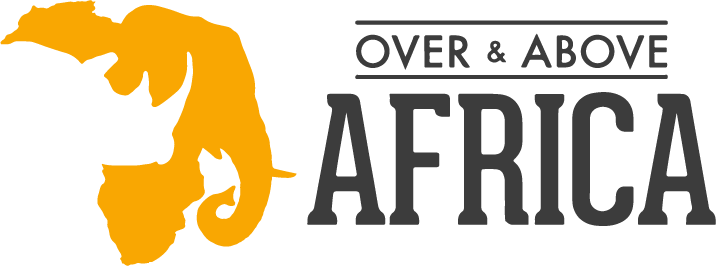Lake ossa, cameroon
Save African Manatees (Trichechus senegalensis) in Lake Ossa, Cameroon, Africa.
This is our first project with E2F (Environment and Food Foundation).
Founded in 2017, Environment and Food Foundation (E2F) has as mission to promote sustainable use and management of marine and aquatic ecosystems of mangroves, wetlands, lakes, rivers, streams and our oceans through: contributing to minimize marine liters/debris, conservation of threatened species and habitats, conducting research and studies, developing alternative livelihoods for local populations that will eliminate primary reliance on the environment, raising awareness, conducting environmental education and strengthening the capacity of all stakeholders involved including local communities. E2F endeavors to achieve its mission through activities that promote sustainable development of communities in Cameroon and beyond. These activities involve strong participation from local communities’ members with the guidance and valuable assistance of E2F team members.
The conservation focus species for this project is the African manatees, which is classified by (IUCN) as vulnerable. The main threat in Lake Ossa presently is the invasive aquatic weed that deprives the lake of oxygen and threatens all wildlife.
Cleaning up Lake Ossa in Cameroon with E2F. An invasive, aquatic weed: Salvinia molesta is depleting the lake of its oxygen which threatens all the marine life.
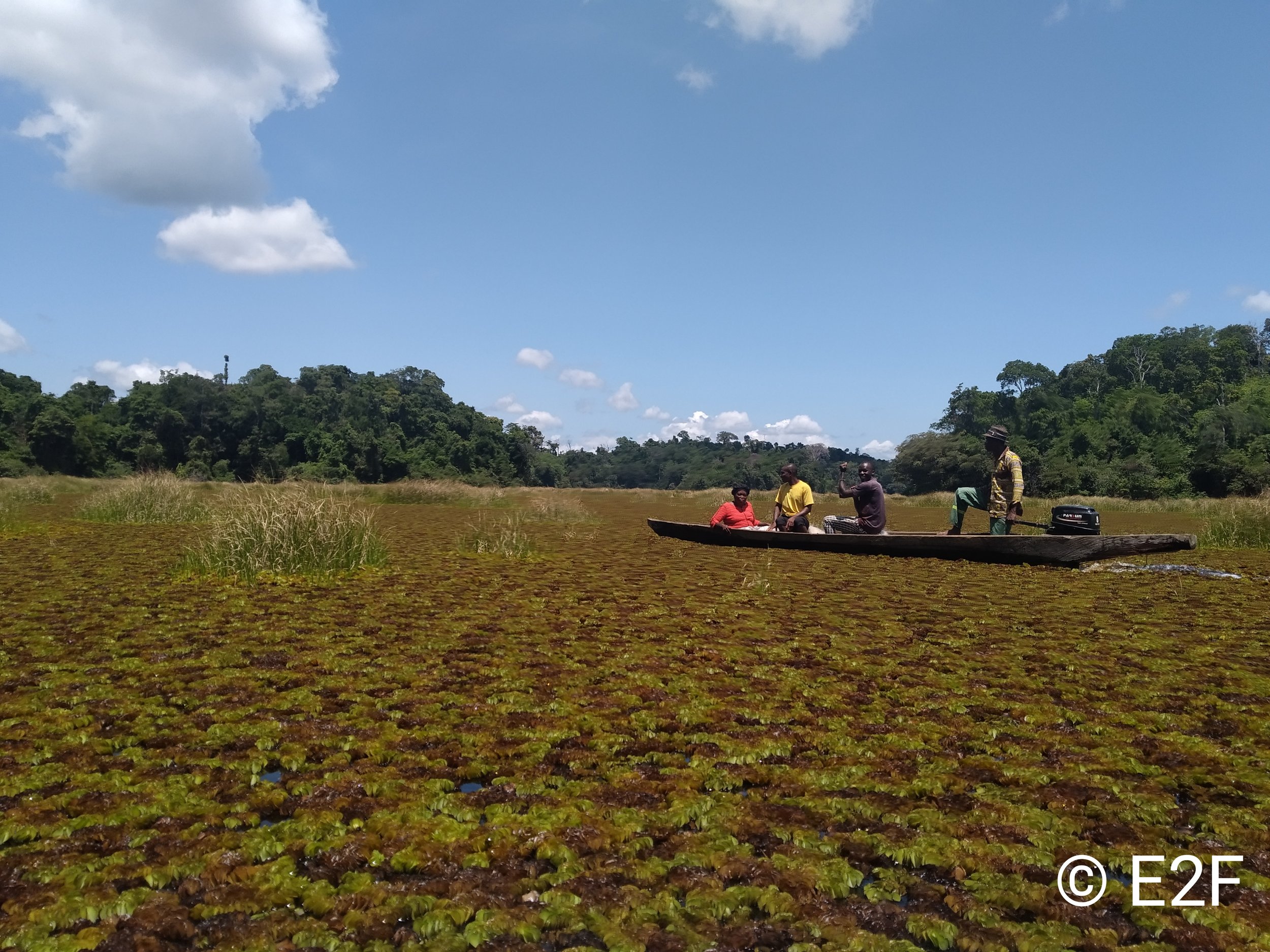
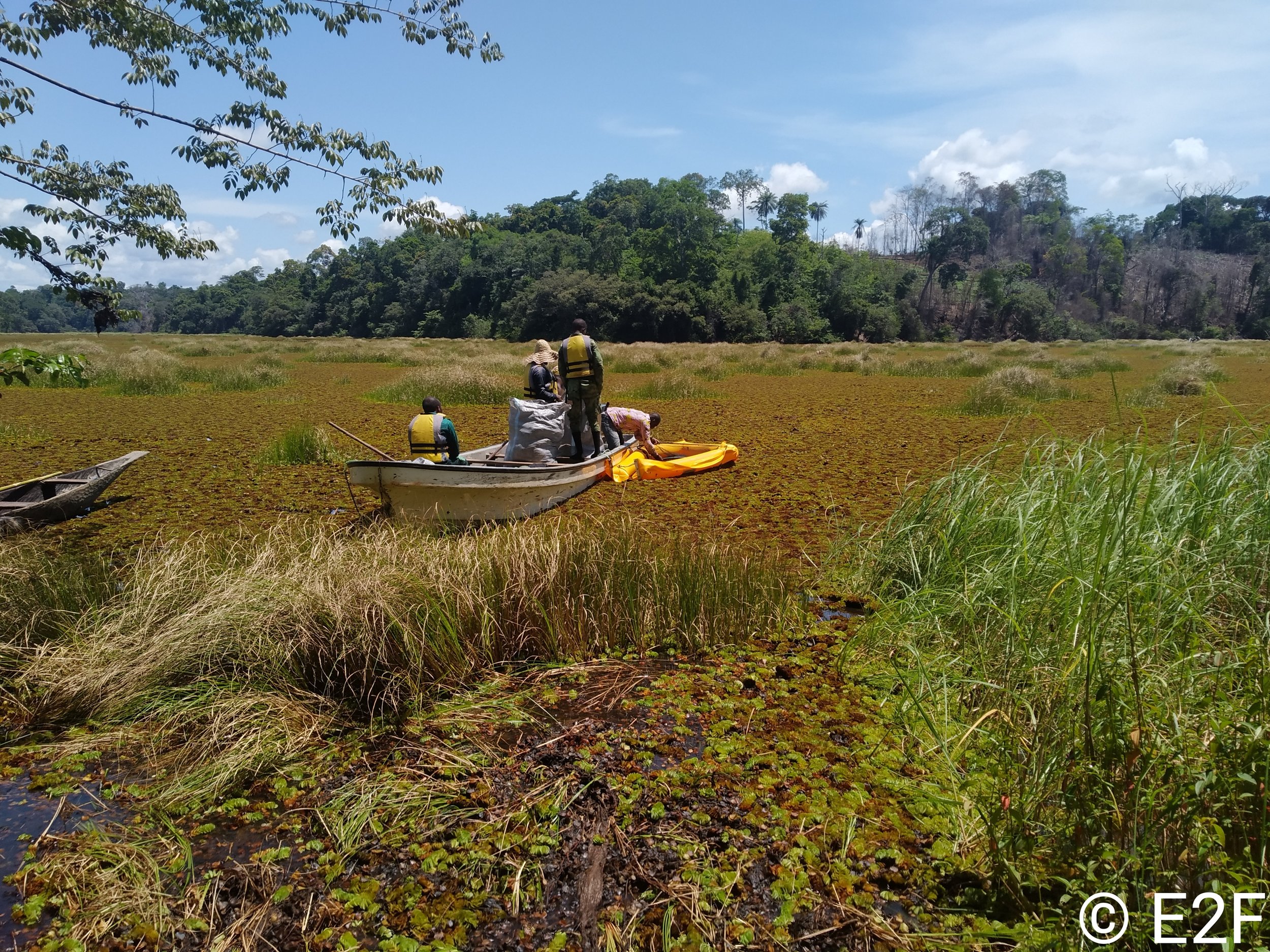
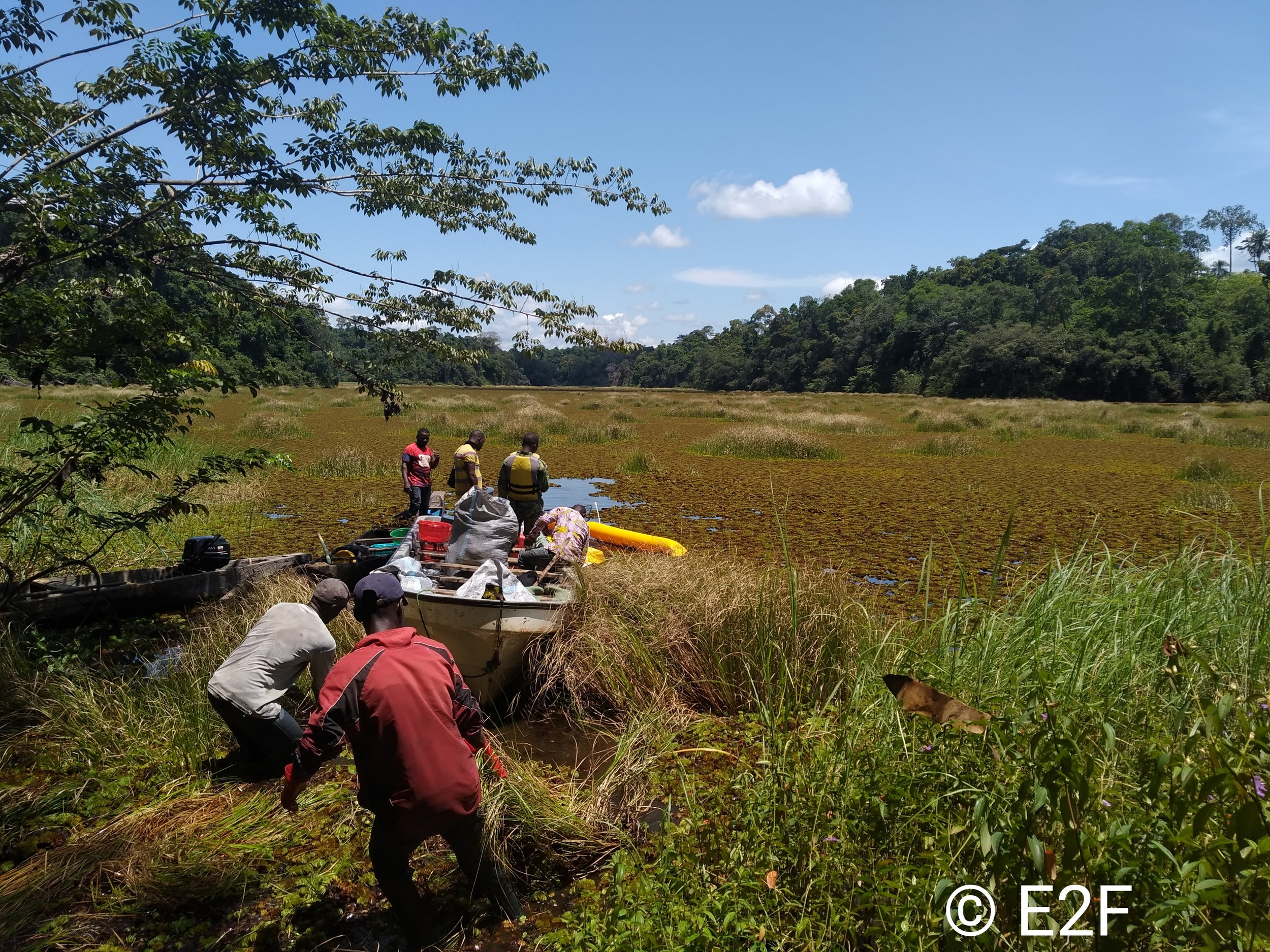
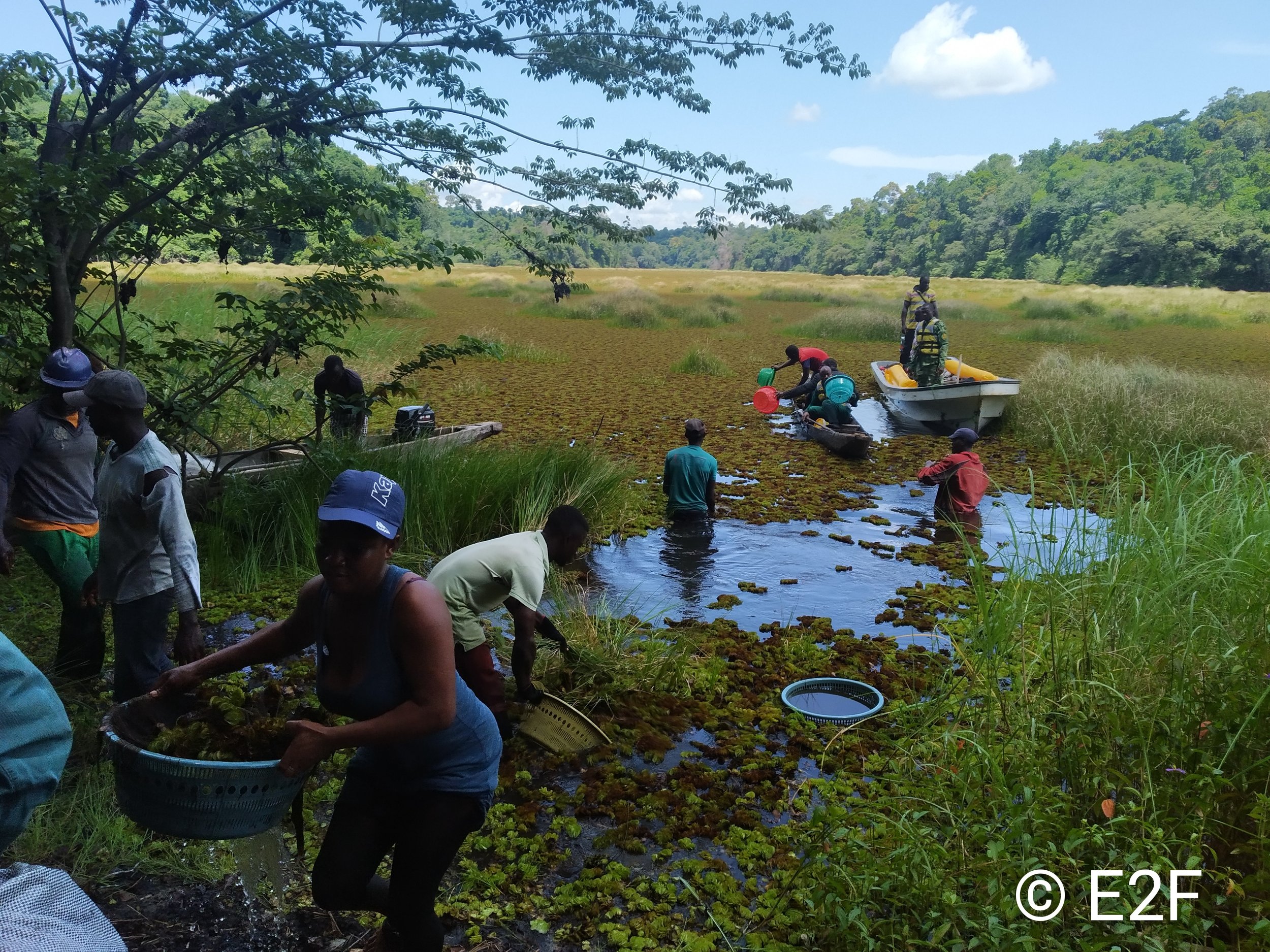
LAKE OSSA, CAMEROON - PROJECT TITLE:
Over & Above Africa’s mission is to help emerging local conservationists save African wildlife by telling the stories of their human guardians. We raise funds for African conservationists and create mini documentaries to share with our donors and the global community to create awareness, inspire action, and show transparency of the funds we raise. We focus on wildlife & community issues, youth empowerment, women-led initiatives, conservation education & awareness, and social entrepreneurship.
This work seeks to conserve and sustainably restore lake Ossa’s rich biodiversity while safeguarding the aquatic megafauna especially African manatees. Lake Ossa is a freshwater of international importance which has a wealth of biodiverse aquatic megafauna including over 80 families of fishes, crustaceans, oysters, snakes, lizards, marine turtles, crocodiles, vulnerable African manatees the most charismatic species in the lake. The conservation focus species for this project is the African manatees, which is classified by International Union for Conservation of Nature (IUCN) as vulnerable.
Lake Ossa provides a range of vital ecosystem services on which the local population totally rely on, which include:
Economically, the lake provides the main source of revenue (over 70%) to the local populations through fishing activities.
Nutritionally, the lake provides the principal sources of protein to the population.
Socially, the lake serves as a site for tourism and leisure for tourists mostly from foreign countries.
Culturally, the lake represents an important cultural heritage of the local population.
Lake Ossa wetland complex needs a sustainable management plan to ensure proper use of natural wetland resources and to mitigate the main threats posed by overfishing, poaching, deforestation, erosion, sedimentation, landslides, eutrophication and the invasive aquatic weed (Salvinia molesta) in the lake.
The main threat in Lake Ossa presently is the invasive aquatic weed (Salvinia molesta) in the lake. Salvinia has already invaded more than 40 per cent of Lake Ossa (4,000 hectares), the largest natural lake found on Cameroon’s coast, since 2016. The mats of aquatic weeds Salvinia indirectly deplete dissolved oxygen, thereby asphyxiating and killing African manatees and other aquatic species. Lake Ossa used to harbour a minimum of 50 individual African manatees, the least-studied of the three manatee species in genus Trichechidae. But their number is on the decline owing to the Salvinia attack on the lake. Manatees are large, slow-moving mammals that frequent coastal waters and rivers. They never leave the water but, like all marine mammals, manatees must surface about every five minutes to breathe. When carpets of invasive Salvinia weeds lock the surface of the lake, they prevent the African manatees from surfacing and breathing.
The International Union for the Conservation of Nature (IUCN) has described the threat posed by Salvinia molesta to Lake Ossa and its ecosystem as "a conservation emergency."
The main objectives of this work is to include;
Increase environmental education, sensitization and awareness raising campaigns among the fishermen on importance of lake Ossa and sustainable utilization of natural resources.
Contribute to minimize the proliferation of Salvinia in the lake by engaging the fishermen in manual or hand removal of Salvinia molesta from the lake.
Project Lead, Achare Elvis Ayamba of Environment and Food Foundation (E2F) has successfully completed 4 projects on; Promoting agroforestry in the lake Ossa Wildlife Reserve, Environmental education, training fishermen on alternative livelihoods like bee farming, manual or hand removal of Salvinia from lake Ossa.
The main activities of this project include;
Conduct environmental education and sensitization meetings on importance of wetlands and sustainable utilization of wetland resources among fishermen in the lake Ossa through focus group discussions with fishermen. We seek to organize focus group discussions with the fishermen, sensitizing them and increasing their awareness on importance of wetlands and biodiversity conservation. Also educate the fishermen on sustainable utilization of wetland resources, because one of the threats in the lake Ossa is illegal poaching. We aim to sensitize and educate over 50 fishermen in lake Ossa.
Manual or hand removal of Salvinia molesta from the lake Ossa, using baskets, and nets and nets
Removing Salvinia molesta by hand so far it is the only method that has been attempted at Lake Ossa to remedy the threat. We seek to remove over 30.000kgs of Salvinia from the lake.
This work will require the participation of fishermen who will engage in manual removal of Salvinia molesta using hand nets, baskets, nets. The Salvinia in the lake shall be cleanup, weighed, registered, collected and transported for processing into compost or organic manure.
Have you received previous funding from any other organization?
Yes, Plastic Oceans International (POI), Sustainable Oceans Alliance (SOA), Waste Free Oceans (WFO), The Pollination Project (TPP) and Empower AS.
Are you signed up for our Over and Above Africa newsletter yet? If not, please sign up to our newsletter!
